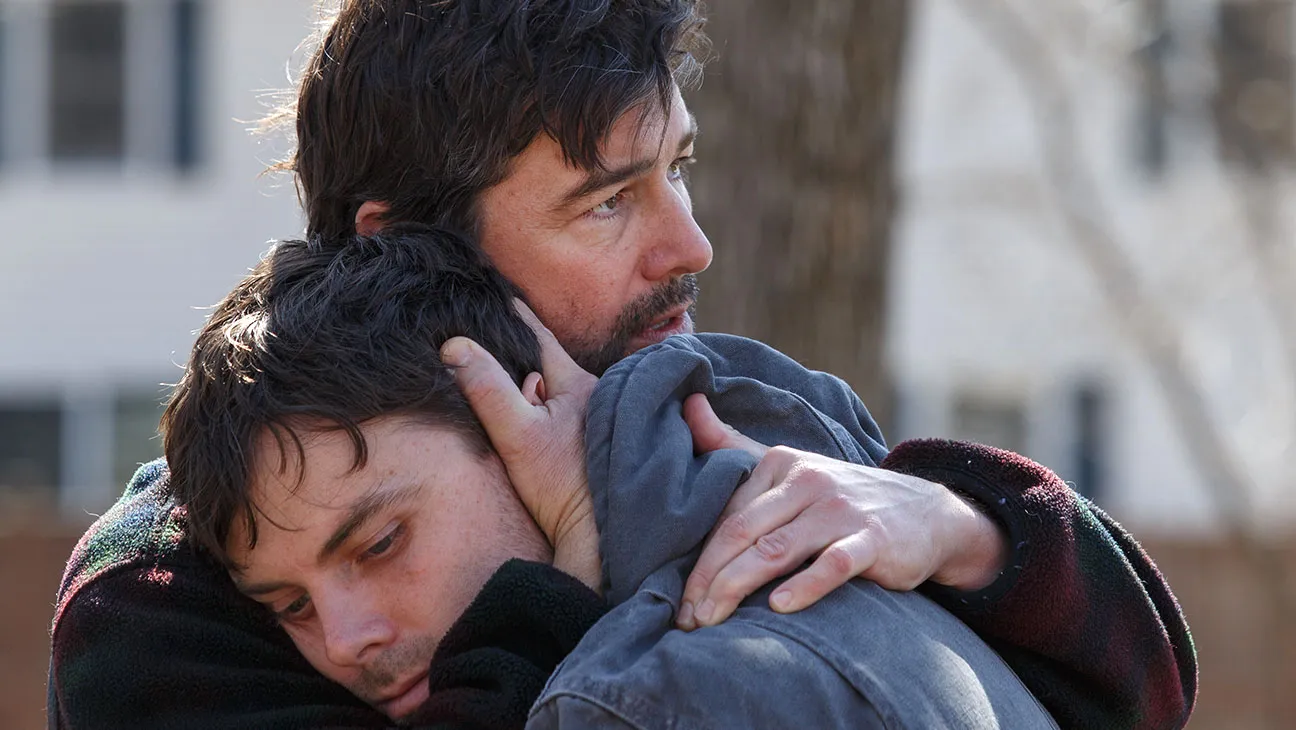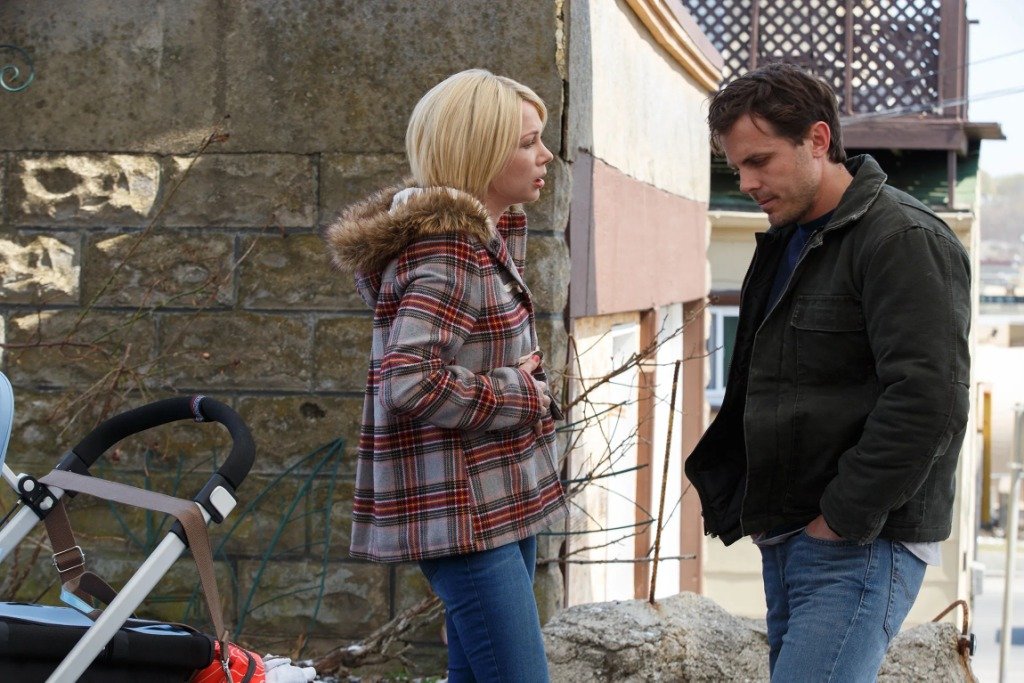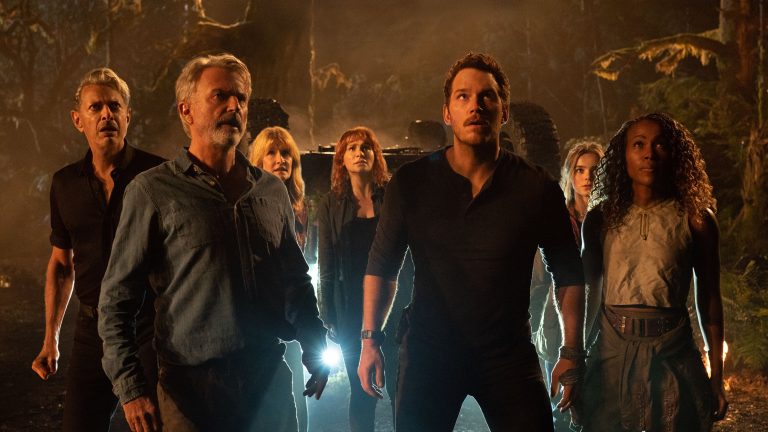Manchester by the Sea is a late 2016 American drama film written and directed by Kenneth Lonergan. Centered on the themes of depression, grief, flawed relationships, and post-traumatic stress disorder, the movie revolves around an emotionally numb and guilt-ridden man who is responsible for the unpremeditated death of his three children and becomes the legal guardian of his scrappy teenage nephew right after the death of his beloved brother.
Lee Chandler character sketch:
Lee Chandler (Casey Affleck) is a dejected, asocial, and alienated character in the movie who is the main male protagonist of the narrative. He resides in Quincy, Massachusetts, and works as a janitor to make ends meet. As a social outcast, Lee is devoid of friends and families around him. He is not a loquacious person; he avoids long talk and is portrayed as an introvert throughout the movie.
Manchester by the Sea (2016) Plot Synopsis:
One day Lee receives a phone call from the hospital only to learn that his brother, Joe (Kyle Chandler), is dying from cardiac arrest. He dies before Lee can make it.
Lee insists on being the one to tell Joe’s teenage son Patrick (Lucas Hedges) about his father’s death. When they are making arrangements for the funeral, they are told that Joe’s body cannot be buried because of the soil being frozen and has to wait until spring. Lee’s sense of responsibility towards his family is immense, so he decides to stay until then.
Joe left a will before passing away, where Lee has been named as a legal guardian to Patrick. Flashback reveals that one night after hosting a raucous party at his house, an intoxicated Lee forgot to put the screen in the fireplace, and the furnace blew, putting an end to the lives of his three small children. However, Randi (Michelle Williams), his wife, was saved. During the police inquiry, a grief-stricken Lee tries to shoot himself by stealing a gun before he is stopped. Ergo staying in Manchester, even for Patrick’s sake, is still painful for Lee, as the reminders of his past surround him, thus making him reluctant to commit to guardianship.
Patrick, on the other hand, stubbornly objects to moving to Massachusetts with his uncle Lee. He expresses his desire to live with his estranged mother, Elise (Gretchen Mol), who was an alcoholic and which is why Elise and Joe divorced, to begin with. At the same time, Patrick can’t reconnect with his mother. Lee’s positive comments about Elise’s sobriety lead Patrick to believe his uncle is trying to get rid of him, which Lee denies.
In spite of having a strain on their relationship, Lee agrees to stay in Manchester for a while. Nonetheless, Randi’s expression of feelings when they run into each other on the market one day opens up Lee’s emotional scars. She breaks down her emotional barrier by telling Lee, “Just don’t die,” as she recognizes the sheer emptiness in Lee’s way of life. Lee deflects her apology, still holding himself responsible for everything, and thinks he does not deserve it. He is so overwhelmed with emotions that he leaves before breaking down.
Masculinity is somewhat constructed around the notion of not mentally collapsing at any point in life, and Lee is a personification of that. Randi’s words somehow ease Lee’s guilt a trifle, but it is not enough for him to reconsider living in Manchester again. That city has all those unfortunate souvenirs which Lee did not want in the first place. He cannot survive there.
Shattered, Lee gets drunk in a bar, picks a fight, and gets knocked off. A family friend named George (C. J. Wilson) and his wife console him, and he breaks down in tears. After learning about Lee’s past, Patrick displays enormous respect for his uncle, bridging their emotional divide. Lee convinces George to adopt Patrick while he is away on business in Boston.
Lee extends an olive branch to Patrick by changing his behavior. He wants an extra bedroom so that Patrick can pay him a visit and, ideally, reunite with him. Before the final curtain, Lee and Patrick go fishing in Joe’s boat, Claudia Marie, which Patrick inherited. Moreover, the moment suggests that Lee can be a surrogate parent to Patrick.
Manchester by the Sea (2016) Movie Themes:
1. AGONY AND LOSS
Lonergan beautifully and devastatingly portrays grief through Lee Chandler’s characterization as he tries to come to terms with the tragedy that has defined his life. Nothing can be worse than a father losing all his children due to self-negligence. Naturally, he holds himself liable as a guilt-ridden Lee tries to shoot himself in the police station before he is subdued. The immeasurable pain that manifests within Lee is hard to explain. No father, not even in his nightmares, wishes to see his children dead.
Lee’s version of coping with agony is merely keeping himself shut from the rest of the world and constructing his inner walls so high that no one can invade. He realized unveiling the truth to people wouldn’t help him much in his barren life. He understood that speaking or opening up would not provide him with an opportunity to let go of the past and make things right this time. No doubt how one menacing mishap can change the perception of things in a person’s life. Lee was a beloved father and had a wholesome family, which was completely shattered by an unintentional accident. I identify this as the worst thing that can happen to an individual, and almost impossible to recover from such adversity.
2. FAMILY AND RESPONSIBILITY
Lee’s journey from a reluctant guardian to an uncle to Patrick describes how much effort he put forward to set aside his grief and be a parent to his nephew, albeit Patrick was later seen adopted by George. Lee can be an emotional outcast, but he is also aware of his familial duties toward his nephew. He even decided to stay in Manchester after Joe’s death as Joe’s body couldn’t be inhumed due to the soil being frozen, and they had to wait until spring.
Lee’s emotionally vacuous and overbearing personality makes him unfit to be a guardian again, and he was well aware of this. This can be because of two things, Patrick might repeatedly remind him of his children, or it can be – nurturing himself to be a parent again can be exhausting because of past traumas. Nevertheless, this movie depicts the challenges Lee faced in caring for a teenager and the struggles of trying to rebuild a relationship with a family member after years of separation.
3. MASCULINITY AND EMOTION
Lonergan introduces evident traits of masculinity as Lee struggles with expressing his feelings and dealing with his emotions. Lee has reduced impulsivity; he hardly expressed any grief for his brother’s death. We often come across people who are devoid of fundamental emotions, Lee being one of them. Lee has a negative outlook on society and prefers not to associate or assimilate with others.
Men in our society are often taught to suppress their feelings even when something deeply traumatic takes place in their life. From an early age, men are conditioned to believe that expressing their feelings is out of character with the male identity. Doing so can ruin their image of being strong and stoic. Specifically, men are told that crying in front of other people will threaten their masculinity.
When it comes to processing emotions, there are different expectations for men and women. Because women are often viewed as “sensitive,” it’s socially acceptable for them to express their feelings, like sadness or fear. But men, who are seen as strong and fearless, are not encouraged to express their emotions outwardly.
These cultural norms and gender stereotypes have been circulating for generations, and they can be toxic, especially for males. Because of that, many men neglect to show their emotions because they’re afraid of the repercussions. However, suppressing emotions and feelings can be incredibly detrimental to a man’s mental health, which was quite apparent in Lee’s character.
4. AMENDMENT AND LENIENCE
Lee is torn between seeking amends or redemption and forgiveness for his previous inadvertent mistakes. He is shown to be gradually making peace with Patrick. Possibly he now realizes that holding on to the past wouldn’t get him anywhere. He has to act as a guardian regardless. He settles their boat dispute by installing a new motor, a sign that he might want to reunite with Patrick.
Lee ascertains to Patrick that he “can’t beat it,” eventually overcoming their emotional gaps, and Patrick breaks down and cries in his arms. It is now obvious that the unavoidable disaster made it impossible for Lee to return to Manchester.
The imagery while Lee is trying to make amends is quite comprehensible. His thought is now unclouded by the fact that there will be definite events in life which is unprecedented or unwanted but will still take place because life is all about uncertainty, fluctuations, and unpredictability. The past can hurt, but one can either run from it or learn from it. Thus, while Lee chose to run from it previously, now decides to face it one at a time. Lonergan, through the character of Lee, shows how difficult it can be to recover from such an impossible past and how forgiveness of oneself can be a complicated and lengthy process.
5. DISTORTED RELATIONS
Lee’s relationship with his former spouse Randi deteriorated after the accident. The once sweet-adorable couple subsequently got divorced. His emotional crisis starts emerging at this juncture. The loss of his three children and parting ways with his wife drastically changed his nature. An impassive Lee moves out from Manchester to Quincy just to bury his dark past because a person cannot live with such guilt. In our mundane society, people like Lee are always held responsible. People would blame him and mock him unless he is thrown into a corner and never get back again. Society is cruel; it never gives a second chance to persons like Lee, and he is aware of it.
Lee and Patrick lack a connection between them, whereas they once shared a remarkable bond. Furthermore, Lee cannot reconcile with the fact that Joe, in his will, offered Patrick’s legal guardianship to him.
Manchester by the Sea (2016) Visual Analysis:
Lonergan’s aesthetic sense is quite admirable. Depressed and asocial persons don’t tend to groom themselves at all. Imagery plays an important role here. Lee is seen to wear dark-colored clothes, sports a disheveled look, and often holds onto a bottle of beer. This, to an extent, spells out his deeply traumatized and scarred character nature.
THE LIGHTING TONE OF THE FILM
The lighting in the movie plays a vital role in establishing the moods and themes throughout. The tone of the film is somewhat agitating, dark, and somber. The film is lit extremely dark, and shadows are often cast over the character’s faces. As Lee battles his demons, shadows over his face are used to convey his agony and grief. This is a neat and smooth lighting effect to help dramatize the film. A hint of blue tint is employed throughout the picture, combined with natural lighting, to convey the film’s solemnity.
MANCHESTER BY THE SEA (2016) ENDING EXPLAINED:
Did Lee Get A Closure?
Lee Chandler is a deeply flawed and complex character who is struggling to come to terms with his past and find meaning in the present; he must grapple with a series of ghosts, both old and new. It can be speculated that he’d reconnected with Patrick, and he protected and loved the boy as a surrogate dad. His journey is portrayed with raw honesty and authenticity that leaves a lasting impression on the viewers.
The ending of the movie doesn’t display a great twist or bestow an unexpected epiphany. We simply witness an emotionally and mentally maimed person recovering from his grief and guilt and, metaphorically, trying to walk again. How the ending should be interpreted relies totally on the viewers. The ending doesn’t give the closure which the audience was looking for. It leaves many a question unanswered.
A more realistic ending is exactly us not knowing what happens next after Lee and Patrick go fishing. People like Lee don’t just recover abruptly, not that they don’t want to, but they can’t. So, in my opinion, Lee is gradually accepting his past while maintaining a good relationship with Patrick because, at some point, people have to move on, and I believe Lee will as well.
Also, Read: The Wicker Man (1973): Ending, Explained & Themes Analyzed
Watch Manchester by the Sea (2016) Trailer
Manchester by the Sea (2016) Links: IMDb, Rotten Tomatoes
Cast: Casey Affleck, Lucas Hedges, Kyle Chandler, and Michelle Williams,





![Dark Waters [2019] Review– A Conventional yet Compelling Account of Toxic Chemical Pollution](https://79468c92.delivery.rocketcdn.me/wp-content/uploads/2020/01/Dark-Waters-2019-768x567.jpg)

![The Favourite [2018] Review: Lives Up To Its Name](https://79468c92.delivery.rocketcdn.me/wp-content/uploads/2018/12/The_Favorite_HOF-768x512.jpg)
